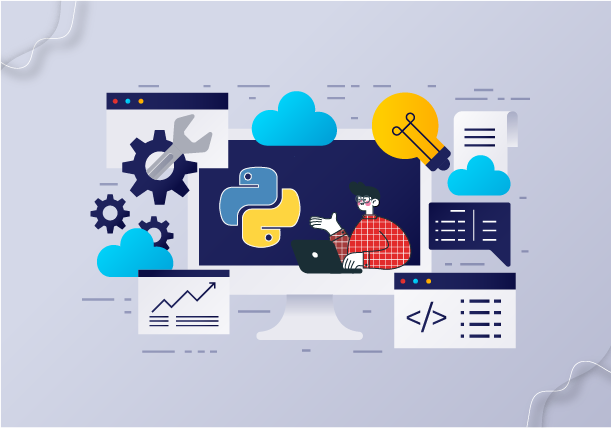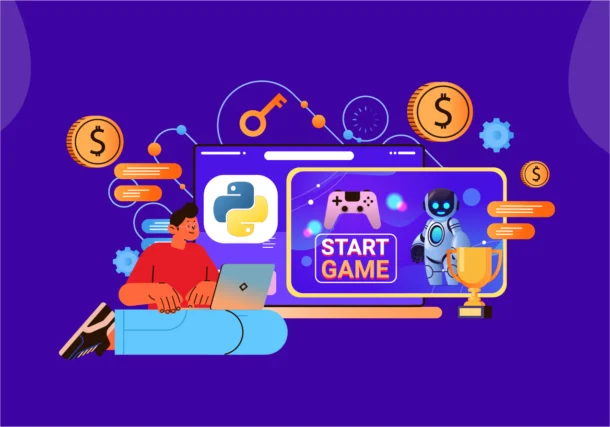Python’s Ascendancy in Mobile App Development: A Comprehensive Guide
Python has been a major influence in the quickly developing field of mobile app development, changing developer methods and norms. With its origins in online development, Python’s entry into the mobile app space represents a significant turning point in the growth of the industry. Its innate simplicity, adaptability, and strong ecology are responsible for its recent rise in popularity. Python android app’s popularity is growing, creating new opportunities for innovation and advancement as developers look for flexible solutions to satisfy the varied demands of contemporary consumers.
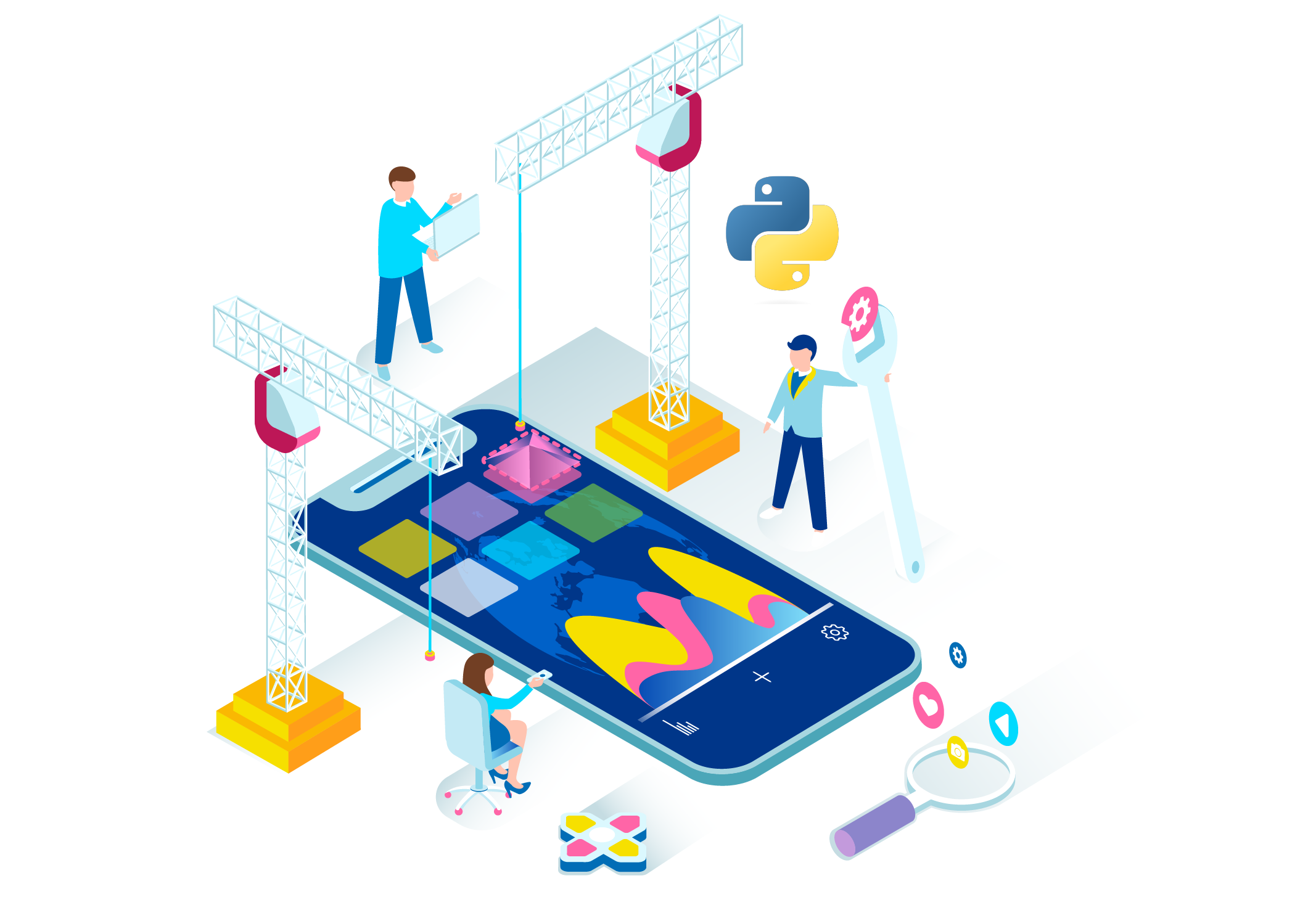
Frameworks like PyQT, Kivy, and BeeWare are essential to Python’s progress in the field of mobile app development. These frameworks make use of Python’s advantages, allowing programmers to create elegant cross-platform applications. Python gives developers the tools they need to easily realize their ideas, from quick prototypes to smooth deployment, which makes it a priceless tool in the rapidly evolving digital world of today.
Looking at Python’s crucial function in the creation of mobile apps reveals a scene full of possibilities for revolution. Its rise is not only a fad but a big change that will change the way the industry works. Python is a developer’s dream come true because of its intuitive interface, strong community, and limitless creative possibilities. It inspires developers to push boundaries and embrace the ever-expanding digital world.
Python’s Mobile Development: Exploring Features, Capabilities, and Challenges
Python’s adaptability and power have attracted a lot of interest, making it a strong contender for creating creative and scalable mobile apps. Let’s start by reviewing the characteristics and capabilities of Python to better understand its role in mobile development. Because of its well-known readability, simplicity, and large standard library, Python is a popular programming language that gives developers a strong platform on which to build reliable programs. High-level abstractions and dynamic typing simplify the development process, freeing developers to concentrate on creating features rather than troubleshooting intricate syntax.
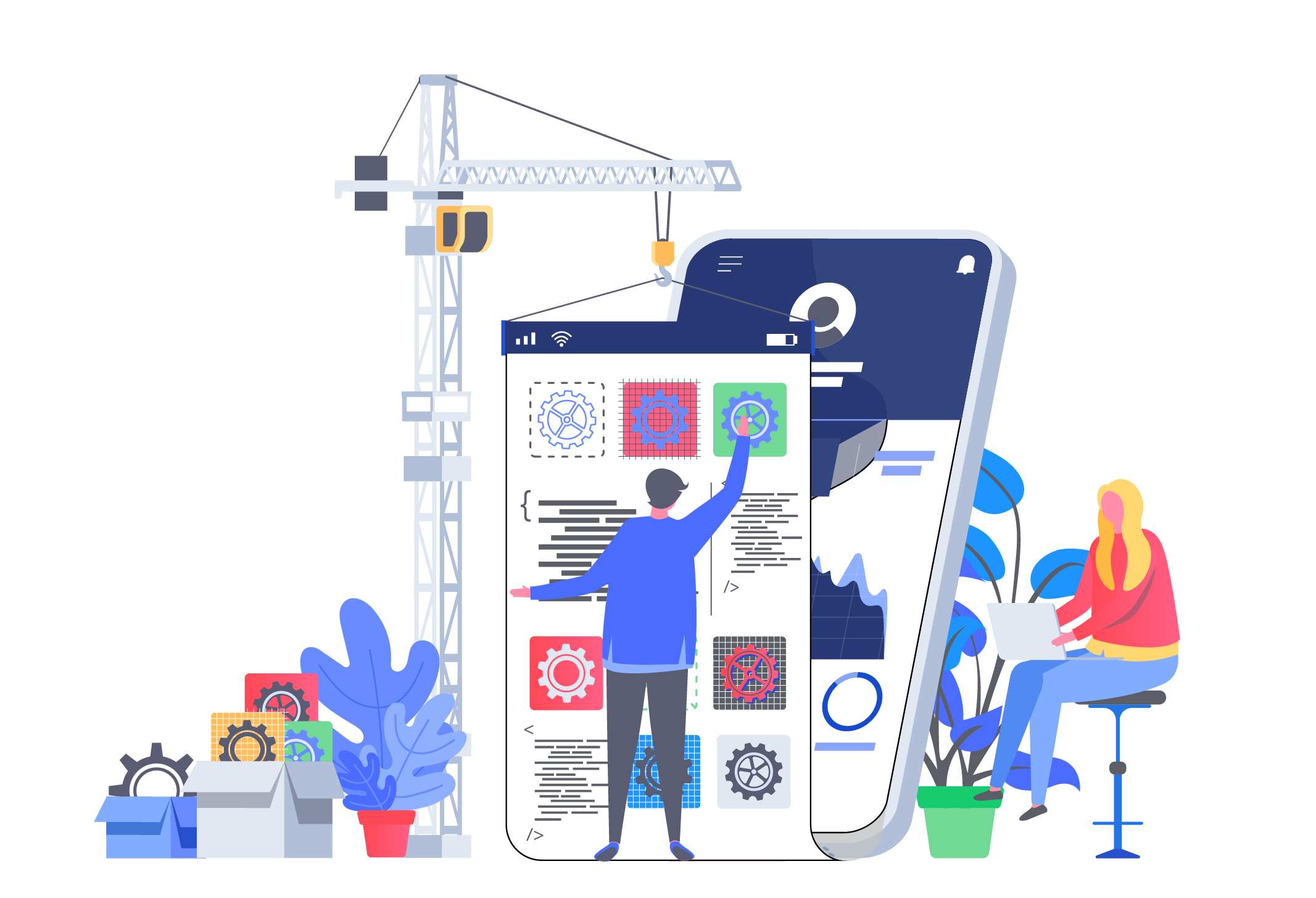
An overview of creating mobile applications using When it comes to utilizing Python’s advantages in the mobile domain, developers have an abundance of options at their disposal. With frameworks like PyQT, Kivy, and BeeWare, Python provides a full toolbox for creating mobile applications that function across platforms. With the help of these frameworks, developers may save time and resources by writing code only once and deploying it across several platforms. Python’s attractiveness is further enhanced by its integration with well-known mobile platforms like iOS and Android, which let developers make use of the large mobile device ecosystem and reach a larger audience.
There are drawbacks to utilizing Python for mobile app development, despite all of its advantages. Performance optimization is one of the main issues since Python is an interpreted language, which might result in slower execution times than languages that are natively built, like Java or Swift. It could also take more time and knowledge to integrate Python with native platform capabilities and APIs. Nevertheless, developers may minimize these difficulties and realize Python’s full potential for creating mobile apps by using careful planning and optimization strategies.
The emergence of Python as a programming language for mobile applications presents a bright future for developers who want to create scalable and creative apps. Developers may make well-informed decisions and utilize Python’s advantages to craft captivating mobile experiences by being aware of the language’s features, capabilities, and obstacles in the mobile world. Python has the power to completely transform the development of mobile apps and open the door to a new wave of mobile innovation when combined with the appropriate tools, frameworks, and knowledge.
Python Android App: Framework Features, Use Cases, and App Samples
Going over the variety of frameworks available is crucial when beginning to create Android apps using Python. Through this voyage, developers will be introduced to a wide range of tools, each with special capabilities and attributes. The three most notable choices are PyQT, Kivy, and BeeWare; each provides a unique method for developing a Python Android app.
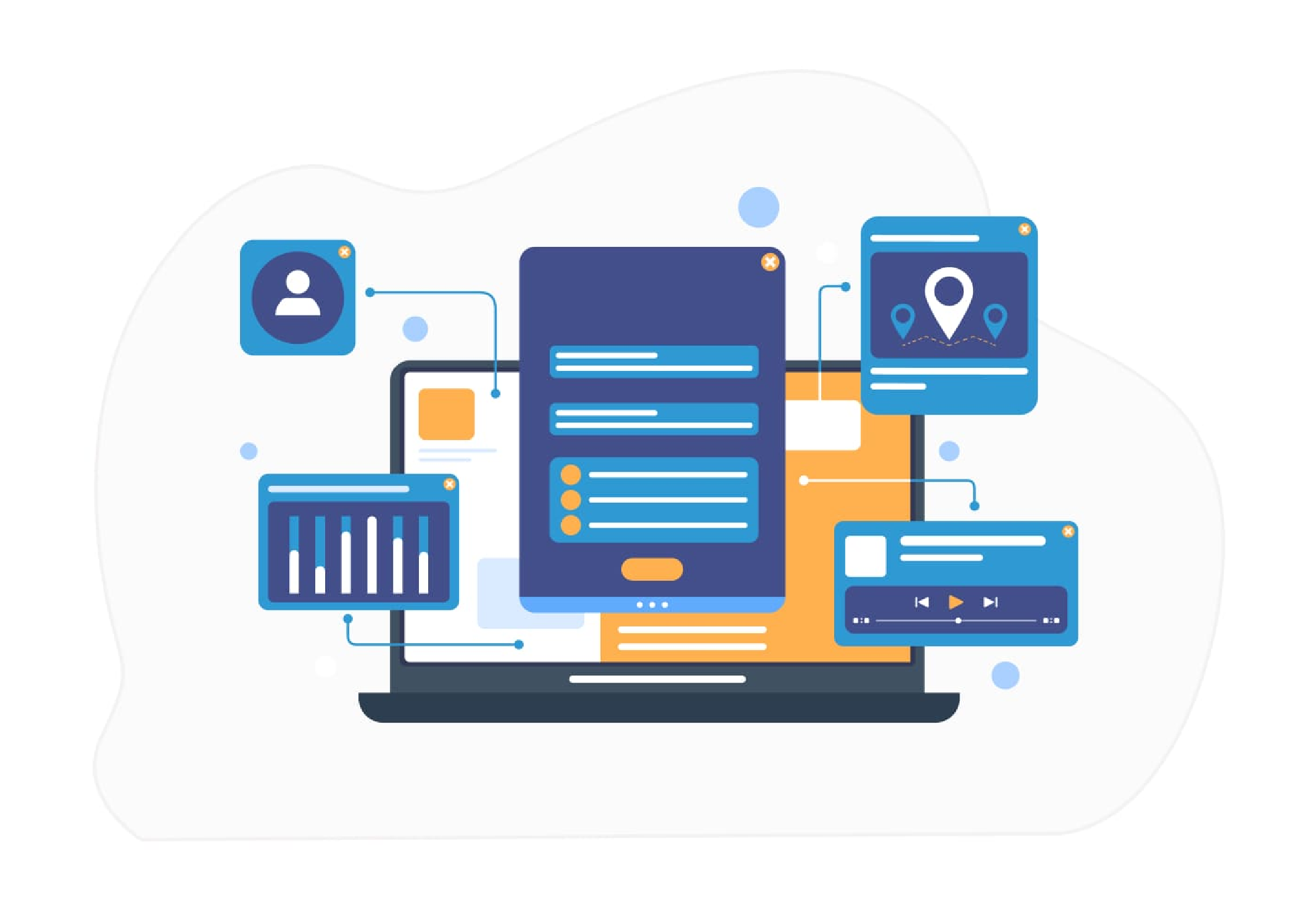
With its intuitive UI and support for multiple touches, Kivy is well-known for enabling developers to create engaging and aesthetically pleasing apps. It is the perfect option for projects aiming at a wide audience because of its cross-platform compatibility, which enables smooth distribution across several platforms.
BeeWare, on the other hand, is notable for being straightforward and user-friendly. With its emphasis on native user interfaces and smooth interaction with the Android platform, BeeWare provides developers with an easy way to create well-designed and efficient Android apps. Known for its potent GUI toolkit, PyQT offers a wide range of tools to developers so they may create complex and feature-rich apps. For developers looking to push the limits of Android app development, its community support and copious documentation make it a popular choice.
Developers may find a multitude of use cases and examples demonstrating these frameworks’ capabilities as they investigate them. Python frameworks for Android development have been used in a wide range of projects across different sectors, from productivity tools to multimedia apps. For example, Kivy has been used to create multimedia-rich apps, interactive instructional apps, and gaming experiences. BeeWare has established a foothold in business-oriented software, utilities, and productivity tools. PyQT has been used to create interactive dashboards, business apps, and sophisticated data visualization tools.
For developers hoping to create unique and feature-rich apps, exploring Python’s Android frameworks gives up a world of possibilities. With their wide range of capabilities, numerous use cases, and outstanding illustrations, Kivy, BeeWare, and PyQT give developers the resources they want to realize their Android app concepts while utilizing Python’s flexibility and strength.
Python’s Next-Gen App Development: Environment Setup, Architecture, Best Practices
Setting up a favorable development environment and putting best practices into effect are only two of the crucial phases in starting the process of using Python to create next-generation applications. The first step in creating an environment for developing Android apps using Python is for developers to install the required tools and libraries, which include the Android SDK, a Python Android app interpreter, and any necessary frameworks like Kivy or BeeWare. This makes sure that everything runs well and makes it easier to integrate Python Android apps into the Android development environment.
Designing dependable and scalable Android apps requires an understanding of the essential elements and architecture of Python-based programs. Typically, these applications are made up of frontend components created with Python frameworks like BeeWare or Kivy, which let programmers design interactive and user-friendly user interfaces. Python modules and frameworks that work with Android development are used to create backend features like data processing and business logic. With this hybrid approach, Python’s advantages in front-end and back-end development are used to create applications that are feature-rich and adaptable.
Following best practices is crucial when creating and building Python applications for future generations. This entails using modular design patterns, following code standards, and maximizing resource usage and performance. Additionally, developers should give security and privacy the utmost priority, making sure that private user information is handled safely and according to industry standards for authentication and encryption. Iteration and continuous testing are also essential for gradually enhancing and optimizing the user experience and functioning of apps.
Through adherence to these guidelines and recommended practices, developers may fully utilize Python’s capabilities to create cutting-edge applications that are beyond the limits of creativity and user interaction. Because of its robust development environment, grasp of app design, and adherence to best practices, Python android app has emerged as a potent tool for developing innovative apps that satisfy the needs of the modern digital world.
Python Android App Development: Future Trends, Opportunities, and Skills Advancement
A number of new trends are expected to emerge in Python-based Android app development. One such trend is the growing use of Python frameworks for cross-platform mobile application development, such as Kivy and BeeWare. With the help of these frameworks, developers may create code only once and have it run on several different platforms, which speeds up development and decreases time to market. Furthermore, leveraging Python libraries like TensorFlow and scikit-learn to incorporate AI and machine learning into Android apps is becoming increasingly common. This improves app functioning and user engagement by empowering developers to craft intelligent and customized experiences for consumers.
Numerous chances for innovation and expansion in the field of Python Android app development accompany these new tendencies. Creating specialty applications that cater to particular user demographics or businesses is one such potential. Developers may open up new markets and revenue streams by creating tailored solutions that address specific customer demands and preferences by utilizing Python’s versatility and ease of use. Moreover, the increasing number of Internet of Things (IoT) devices offers an additional avenue for creativity in Python Android app development. Python may be used to seamlessly integrate IoT features into Android apps, allowing developers to create experiences that seamlessly blend the real and virtual worlds.
Developers need to keep learning new things about Python Android app development to take advantage of these opportunities and stay ahead of the curve. This entails visiting industry conferences and seminars, keeping up with the most recent developments in the area, and actively engaging in online forums and communities. Developers should also devote time to improving their knowledge in pertinent fields like IoT, machine learning, and cross-platform development to stay competitive in the rapidly evolving field of mobile app development.
The possibilities for future innovation and expansion in Python Android app development are quite promising. Developers may fully use Python android app to create innovative Android applications that please consumers and propel company success by embracing evolving trends, grasping new chances, and consistently improving their abilities.
Shoot-Up Your Python Android App Development by Choosing Pattem Digital
In terms of knowledge and assistance for creating Python Android apps, Pattem is unmatched. Our team of proficient experts, well-versed in both Python Android app and mobile app development, offers customized solutions to fulfill your specific requirements. We have the expertise to realize your idea, from developing cross-platform apps with frameworks like Kivy or BeeWare to incorporating cutting-edge technologies like IoT and machine intelligence.
Throughout the project, our collaborative approach guarantees open communication and collaboration. You may boldly experiment with novel solutions and new trends when Pattem is your partner. Select Pattem to advance your Python Android app development endeavors and attain prosperity in the ever-changing digital terrain of today.




